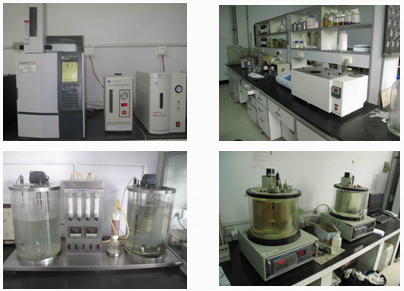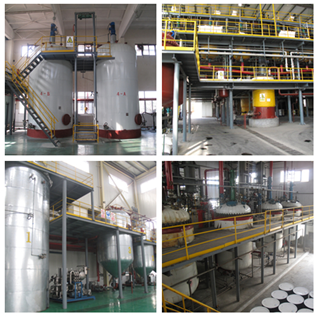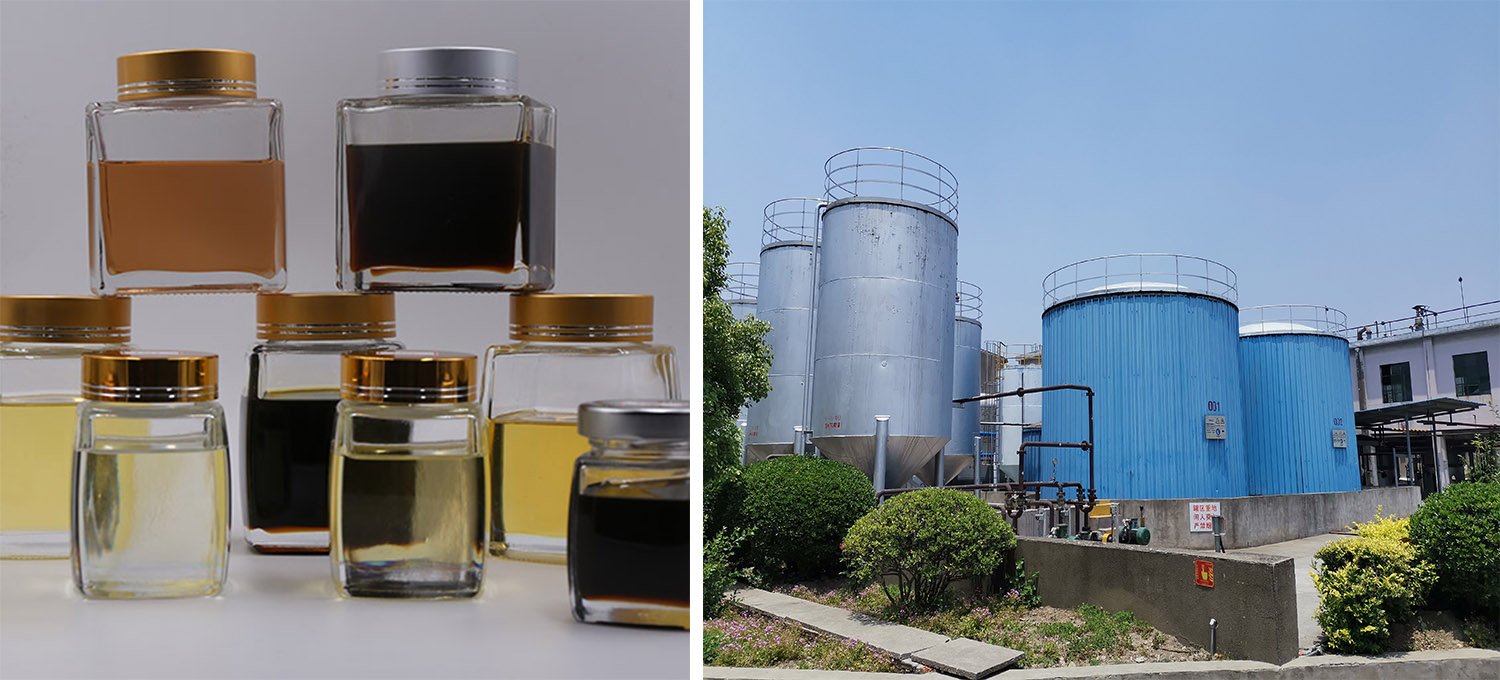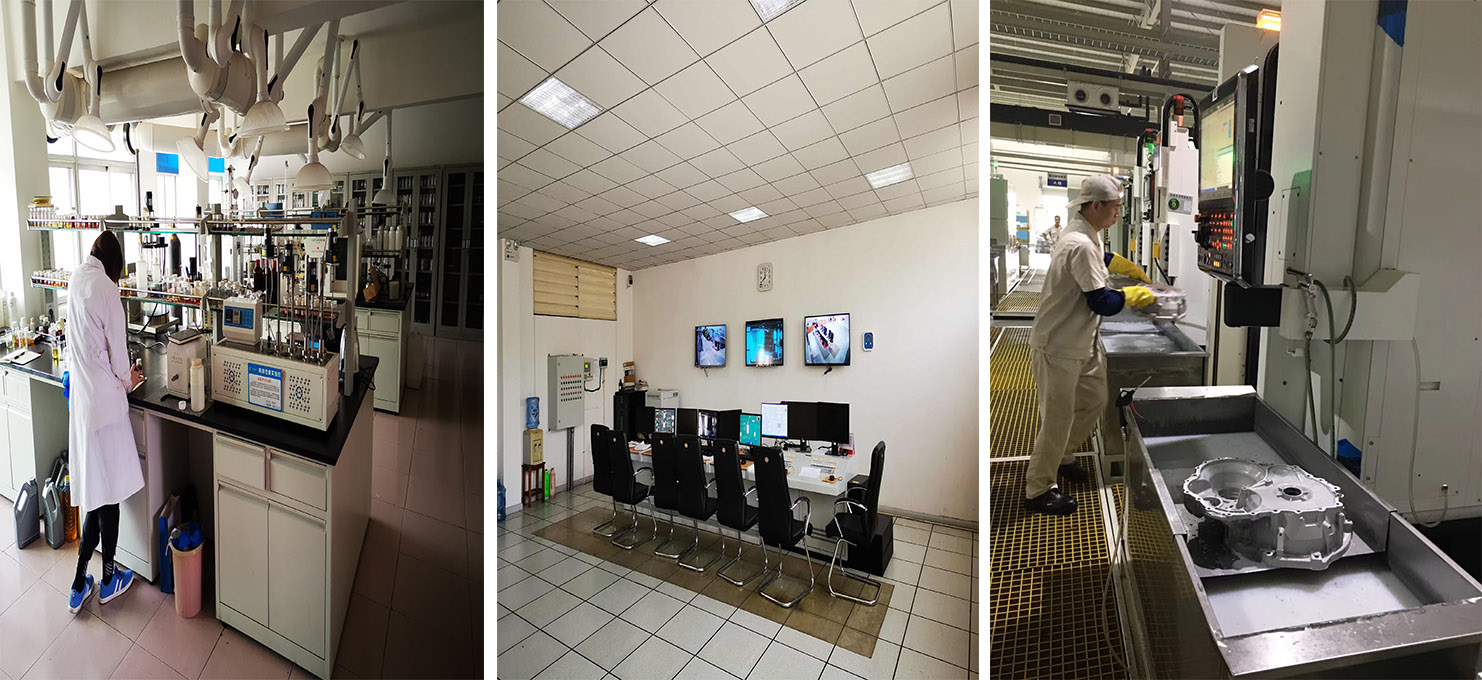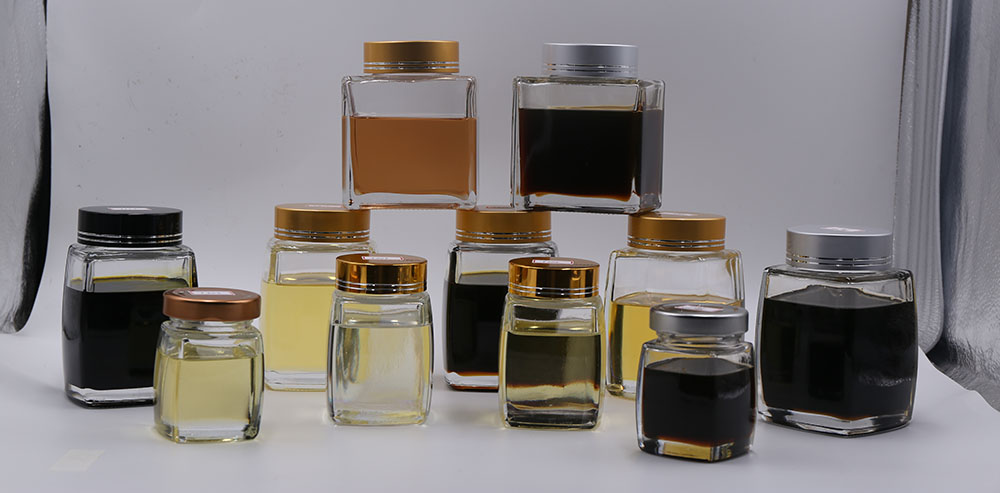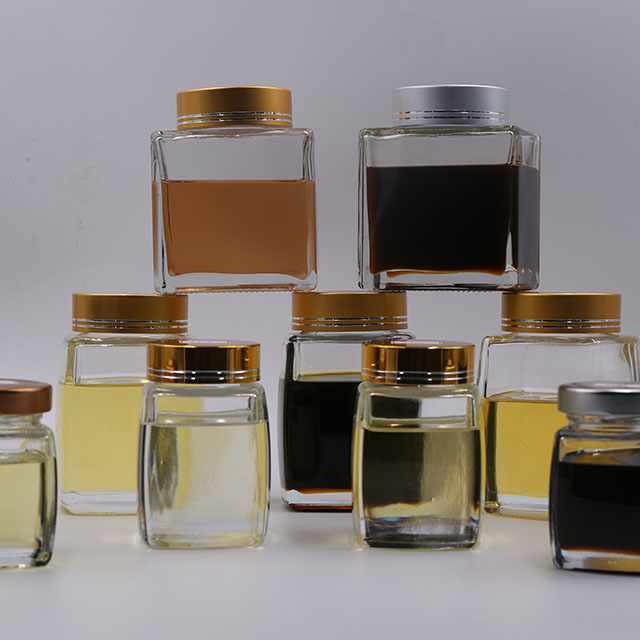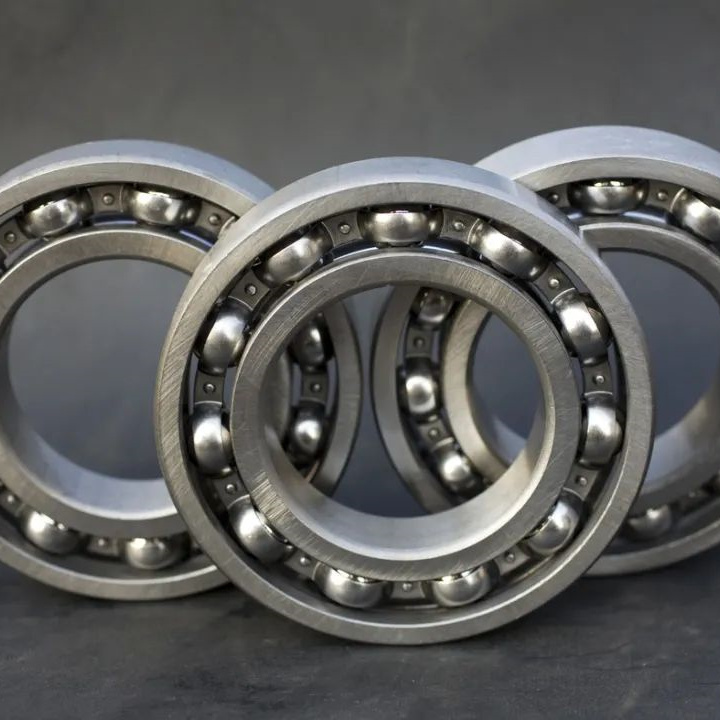Overall, the Polyglycolic Acid Corrosion Inhibitor is a reliable and effective solution for corrosion prevention. Its composition and characteristics make it a versatile product that can be used in various industries including automotive, construction, marine, and oil and gas. It provides long-term protection against corrosion, enhances the durability of metal components, and contributes to sustainable and environmentally friendly practices.
Polyglycolic Acid Corrosion Inhibitor is a highly effective product that works by inhibiting the corrosion process through a series of chemical reactions. Its reaction mechanism involves the formation of a protective film on the surface of the metal, which acts as a barrier against corrosive agents.
The main active ingredient in the Polyglycolic Acid Corrosion Inhibitor is polyglycolic acid, a biodegradable polymer that has excellent corrosion inhibiting properties. When applied to the metal surface, the polyglycolic acid undergoes hydrolysis in the presence of water or moisture. This hydrolysis process results in the release of glycolic acid, which acts as a corrosion inhibitor.
Glycolic acid works by forming a passivating layer on the metal surface, which prevents the interaction of corrosive agents with the metal. It acts as a sacrificial anode, meaning that it can be oxidized in place of the metal, thereby protecting the metal from corrosion. This passivating layer is stable and adheres strongly to the metal surface, providing long-lasting protection.
In addition to glycolic acid, the Polyglycolic Acid Corrosion Inhibitor may also contain other additives and stabilizers that enhance its corrosion inhibiting properties. These additives may work by providing additional protection against specific corrosive agents, improving the adhesion of the protective film, or enhancing the overall performance of the inhibitor.
The reaction mechanism of the Polyglycolic Acid Corrosion Inhibitor is influenced by factors such as temperature, pH, and the presence of other chemicals. Higher temperatures can accelerate the hydrolysis process, resulting in a faster release of glycolic acid and a more rapid formation of the protective film. The pH of the environment can also affect the inhibitor's performance, as certain pH levels may promote or hinder the hydrolysis reaction.
The Polyglycolic Acid Corrosion Inhibitor can be applied to the metal surface through various methods such as spray, brush, or dip coating. Once applied, the inhibitor reacts with the moisture present in the environment, initiating the hydrolysis process and the formation of the protective film.
Overall, the reaction mechanism of the Polyglycolic Acid Corrosion Inhibitor involves the hydrolysis of polyglycolic acid, resulting in the release of glycolic acid. This glycolic acid forms a passivating layer on the metal surface, providing a barrier against corrosive agents and preventing the corrosion process. The inhibitor's performance can be further enhanced through the addition of other additives and stabilizers. By understanding and utilizing this reaction mechanism, the Polyglycolic Acid Corrosion Inhibitor can effectively protect metal components from corrosion, prolonging their lifespan and reducing maintenance costs.
3. Use of the product Polyglycolic Acid Corrosion Inhibitor is a versatile and highly effective product that finds application in various industries for corrosion prevention and protection. Its unique composition and characteristics make it a preferred choice for many applications.
One of the main uses of Polyglycolic Acid Corrosion Inhibitor is in the automotive industry. It is widely used in the manufacturing of vehicles and their components to protect them from corrosion. The inhibitor can be applied as a coating on the metal surfaces, forming a protective film that acts as a barrier against corrosive agents such as moisture, salt, and chemicals. By preventing corrosion, it helps to maintain the structural integrity and extend the lifespan of automotive parts, resulting in improved performance and reduced maintenance costs.
In the construction industry, Polyglycolic Acid Corrosion Inhibitor is employed for corrosion protection of various structures and infrastructure. It can be used in the construction of bridges, buildings, pipelines, and offshore structures, among others. By applying the inhibitor to the metal surfaces, it forms a protective layer that acts as a shield against corrosive elements present in the environment. This helps to prevent degradation, maintain structural stability, and prolong the service life of the infrastructure.
Polyglycolic Acid Corrosion Inhibitor also finds application in the marine industry. It is used to protect ships, boats, and offshore platforms from corrosion caused by saltwater exposure. The inhibitor's ability to form a durable and long-lasting protective film makes it suitable for use in marine environments. It helps to prevent the formation of rust and other forms of corrosion, ensuring the longevity and safety of marine vessels and structures.
Another significant use of Polyglycolic Acid Corrosion Inhibitor is in the oil and gas industry. It can be applied to metal equipment and structures used in oil refineries, pipelines, storage tanks, and offshore drilling platforms. The inhibitor provides an effective barrier against corrosive agents such as water, acids, and gases, protecting the integrity of the equipment and preventing leaks or failures.
Polyglycolic Acid Corrosion Inhibitor is also used in various other industries, including electronics, aerospace, and manufacturing. It can be applied to metal components and surfaces to prevent corrosion and ensure their optimal performance. The inhibitor's versatility, ease of application, and long-lasting protection make it a valuable asset in these industries.
In conclusion, Polyglycolic Acid Corrosion Inhibitor is a highly effective and versatile product that finds widespread use in various industries. Its ability to prevent corrosion, enhance durability, and extend the lifespan of metal components makes it an essential solution for maintaining infrastructure, equipment, and structures. With its environmentally friendly composition and easy application methods, it contributes to sustainable practices and cost-saving measures in industries worldwide.
4. Production application examples in China Polyglycolic Acid Corrosion Inhibitor is a widely used product in China, with numerous applications across various industries. Its composition and characteristics make it highly effective for corrosion prevention and protection.
In the automotive industry, Polyglycolic Acid Corrosion Inhibitor is extensively used in the manufacturing of vehicles and their components. It is applied as a coating on metal surfaces to form a protective film that acts as a barrier against corrosion-causing agents such as moisture, salt, and chemicals. This helps to maintain the structural integrity of automotive parts, prolong their lifespan, and reduce maintenance costs.
In the construction sector, Polyglycolic Acid Corrosion Inhibitor plays a crucial role in protecting structures and infrastructure. It is used in the construction of bridges, buildings, pipelines, and offshore structures. By applying the inhibitor to metal surfaces, a protective layer is formed that shields against corrosive elements present in the environment. This prevents degradation, ensures structural stability, and extends the service life of the infrastructure.
The marine industry also extensively utilizes Polyglycolic Acid Corrosion Inhibitor to protect ships, boats, and offshore platforms from corrosion caused by saltwater exposure. The inhibitor's ability to form a durable and long-lasting protective film makes it ideal for marine environments. It prevents the formation of rust and other forms of corrosion, ensuring the longevity and safety of marine vessels and structures.
In China's oil and gas industry, Polyglycolic Acid Corrosion Inhibitor is applied to metal equipment and structures used in oil refineries, pipelines, storage tanks, and offshore drilling platforms. It provides an effective barrier against corrosive agents such as water, acids, and gases, protecting the integrity of the equipment and preventing leaks or failures.
Polyglycolic Acid Corrosion Inhibitor also finds application in various other industries in China. In the electronics industry, it is used to protect metal components from corrosion and ensure optimal performance. In aerospace, it is applied to aircraft and spacecraft components to prevent corrosion in harsh environmental conditions. In manufacturing, it is used to protect metal surfaces and components from corrosion during production and storage.
These production application examples highlight the versatility and effectiveness of Polyglycolic Acid Corrosion Inhibitor in various industries in China. Its ability to prevent corrosion, enhance durability, and extend the lifespan of metal components makes it an indispensable product. With the increasing emphasis on sustainability and cost-saving measures, the use of Polyglycolic Acid Corrosion Inhibitor contributes to the longevity and efficiency of infrastructure, equipment, and structures in China.
Polyglycolic Acid Corrosion Inhibitor is a widely used product in China, with numerous applications across various industries. Its composition and characteristics make it highly effective for corrosion prevention and protection.
In the automotive industry, Polyglycolic Acid Corrosion Inhibitor is extensively used in the manufacturing of vehicles and their components. It is applied as a coating on metal surfaces to form a protective film that acts as a barrier against corrosion-causing agents such as moisture, salt, and chemicals. This helps to maintain the structural integrity of automotive parts, prolong their lifespan, and reduce maintenance costs.
In the construction sector, Polyglycolic Acid Corrosion Inhibitor plays a crucial role in protecting structures and infrastructure. It is used in the construction of bridges, buildings, pipelines, and offshore structures. By applying the inhibitor to metal surfaces, a protective layer is formed that shields against corrosive elements present in the environment. This prevents degradation, ensures structural stability, and extends the service life of the infrastructure.
The marine industry also extensively utilizes Polyglycolic Acid Corrosion Inhibitor to protect ships, boats, and offshore platforms from corrosion caused by saltwater exposure. The inhibitor's ability to form a durable and long-lasting protective film makes it ideal for marine environments. It prevents the formation of rust and other forms of corrosion, ensuring the longevity and safety of marine vessels and structures.
In China's oil and gas industry, Polyglycolic Acid Corrosion Inhibitor is applied to metal equipment and structures used in oil refineries, pipelines, storage tanks, and offshore drilling platforms. It provides an effective barrier against corrosive agents such as water, acids, and gases, protecting the integrity of the equipment and preventing leaks or failures.
Polyglycolic Acid Corrosion Inhibitor also finds application in various other industries in China. In the electronics industry, it is used to protect metal components from corrosion and ensure optimal performance. In aerospace, it is applied to aircraft and spacecraft components to prevent corrosion in harsh environmental conditions. In manufacturing, it is used to protect metal surfaces and components from corrosion during production and storage.
These production application examples highlight the versatility and effectiveness of Polyglycolic Acid Corrosion Inhibitor in various industries in China. Its ability to prevent corrosion, enhance durability, and extend the lifespan of metal components makes it an indispensable product. With the increasing emphasis on sustainability and cost-saving measures, the use of Polyglycolic Acid Corrosion Inhibitor contributes to the longevity and efficiency of infrastructure, equipment, and structures in China.
5. Packaging and storage Polyglycolic Acid Corrosion Inhibitor is a highly effective product that requires proper packaging and storage to ensure its quality and effectiveness. The packaging of the inhibitor plays a crucial role in maintaining its stability and preventing any contamination.
Typically, Polyglycolic Acid Corrosion Inhibitor is packaged in high-quality containers that are resistant to moisture, oxygen, and other environmental factors that can degrade the inhibitor. These containers are usually made of materials such as HDPE (high-density polyethylene) or PET (polyethylene terephthalate) to provide a barrier against external elements. Additionally, the packaging is designed to be airtight, preventing the inhibitor from coming into contact with air, which can accelerate its degradation.
It is essential to store the Polyglycolic Acid Corrosion Inhibitor in a cool, dry, and well-ventilated area. Exposure to high temperatures can lead to the degradation of the inhibitor and reduce its effectiveness. Therefore, it is recommended to store the inhibitor at temperatures below 25°C (77°F) to ensure its stability.
Furthermore, it is important to protect the inhibitor from direct sunlight and sources of heat during storage. Prolonged exposure to UV radiation can accelerate the degradation process and compromise the inhibitor's performance. Therefore, it is best to store the inhibitor in a dark or opaque container and keep it away from heat sources.
It is also crucial to handle the Polyglycolic Acid Corrosion Inhibitor with care to prevent any accidental spills or leakage. Proper handling includes ensuring that the containers are securely sealed after each use and stored in an upright position to prevent any potential leaks.
Additionally, it is recommended to keep the Polyglycolic Acid Corrosion Inhibitor away from incompatible substances, such as strong acids or bases, as they can react with the inhibitor and reduce its effectiveness. It is advisable to store the inhibitor in a dedicated storage area away from other chemicals and substances.
Proper packaging and storage of Polyglycolic Acid Corrosion Inhibitor not only help maintain its quality and effectiveness but also ensure the safety of those handling it. By following these guidelines, users can maximize the shelf life of the inhibitor and ensure its optimal performance when applied to metal surfaces for corrosion prevention.
6. Product production process The production process of Polyglycolic Acid Corrosion Inhibitor involves several steps to ensure the quality and effectiveness of the final product.
Raw Material Preparation: The production process begins with the preparation of the raw materials needed to make Polyglycolic Acid Corrosion Inhibitor. This typically includes sourcing high-quality glycolic acid and other necessary chemicals.
Polymerization: The main step in the production process is the polymerization of glycolic acid. This involves heating and reacting the glycolic acid with a catalyst, usually tin or antimony-based, to form polyglycolic acid. The polymerization reaction is carefully controlled to achieve the desired molecular weight and properties of the inhibitor.
Purification: After the polymerization, the polyglycolic acid is purified to remove any impurities or by-products. This process typically involves filtration, centrifugation, and washing with solvents to ensure a high-purity final product.
Formulation: Once the polyglycolic acid is purified, it is combined with other additives and ingredients to create the corrosion inhibitor formulation. These additives may include corrosion inhibitors, surfactants, dispersants, and stabilizers, depending on the specific application requirements.
Mixing and Homogenization: The formulation is then mixed and homogenized to ensure uniform distribution of the additives throughout the polyglycolic acid matrix. This step is crucial in achieving consistent and effective corrosion prevention properties in the final product.
Quality Control and Testing: Throughout the production process, rigorous quality control measures are implemented to ensure the product meets the required specifications and standards. Samples from each batch are tested for various parameters such as viscosity, pH, density, and corrosion inhibition performance.
Packaging: Once the Polyglycolic Acid Corrosion Inhibitor has passed quality control testing, it is packaged in suitable containers. The packaging is designed to protect the product from moisture, oxygen, and other environmental factors that can degrade its quality and effectiveness.
Storage and Distribution: The packaged inhibitors are stored in a controlled environment to maintain their stability until they are ready for distribution. Proper labeling and documentation are provided to ensure traceability and compliance with regulatory requirements.
The production process of Polyglycolic Acid Corrosion Inhibitor is carefully controlled and monitored to ensure consistent quality and performance. By following these steps, manufacturers can produce a reliable and effective product that helps prevent corrosion and prolongs the lifespan of metal components in various industries.
Zhengzhou Chorus
Lubricant Additive Co., Ltd is a professional Lubricant Additive manufacturer integrating R&D, production, sales and service, with more than 10 years of experience. We are focusing on various
Lubricant Additive Component & Additive Package , as well as
Metal Working Fluid, component include
Pour Point Depressant,
Viscosity Index Improver, Antiwear/ Ep Additive , Antioxidant, Rust Preventative, Detergent,
Ashless Dispersant, etc.,

